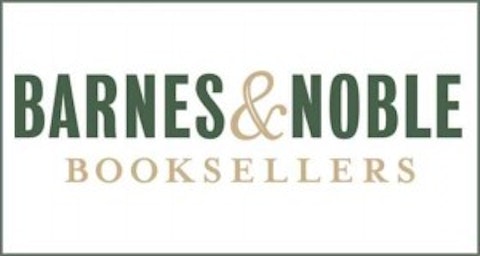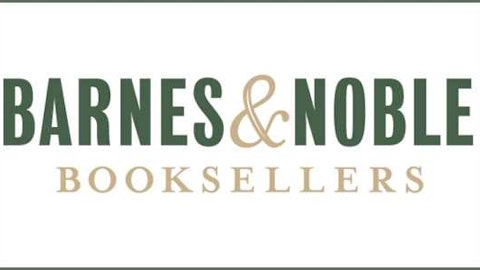
Riggio has been interested in buying Barnes & Noble, Inc. (NYSE:BKS)’s main business — its bookstores and website — to take them private. Riggio hasn’t yet made an offer, but this looming possibility adds to the uncertainty caused by Barnes & Noble’s loss-making ways and its current executive turmoil. Is Barnes & Noble, Inc. (NYSE:BKS) about to go under, as top rival Borders did two years ago? Or is the company on the verge of a renaissance?
Competing with a giant
Barnes & Noble put a host of mom-and-pop bookstores out of business as it built a retail empire over the past few decades. However, the company’s success was eventually disrupted by an even more efficient competitor: Amazon.com, Inc. (NASDAQ:AMZN).
Amazon.com, Inc. (NASDAQ:AMZN) has been able to offer much lower average prices than Barnes & Noble, Inc. (NYSE:BKS) because of its direct-from-warehouse operating model, its willingness to accept lower margins, and even its exemption from collecting most sales taxes. Furthermore, many consumers came to prefer shopping online to the hassle of waiting in a checkout line at a retail store.
Amazon.com, Inc. (NASDAQ:AMZN) created further headaches for Barnes & Noble with the launch of its Kindle e-reader in 2007. Since then, e-books have become a bigger and bigger part of the overall book market, accounting for 20%-25% of the market. Amazon retains the largest share of the e-book market.
A surprising result
Barnes & Noble has tried to react to these trends by launching its own website and its own line of Nook e-readers. However, Barnes & Noble, Inc. (NYSE:BKS) has never been as successful as Amazon in these initiatives. While Nook devices have often received good reviews, they haven’t sold as well as Amazon’s Kindles and have contributed huge losses to Barnes & Noble’s bottom line. The Nook division (which includes both e-reader/tablet hardware and content sales) posted an EBITDA loss of $475 million last year, or $253 million excluding a significant inventory writedown.
From a big-picture perspective, it’s clear that Barnes & Noble, Inc. (NYSE:BKS) has been investing lots of money in the Nook business with the goal of building up a viable competitor to Amazon. However, growth stalled out last year, while losses increased. As a result, Barnes & Noble is now dropping out of the tablet business, choosing to partner with other tablet manufacturers going forward.
Yet the legacy retail business is surprisingly healthy. Retail segment EBITDA grew 16% to $374 million in the recently ended fiscal year, despite a 3.4% comparable-store sales decline. The college segment posted a slight EBIDTA decline from $116 million to $111 million.
Many people still prefer physical books and enjoy the atmosphere of Barnes & Noble stores. Furthermore, with the demise of Borders, the company has no competing national bookstore chain. Barnes & Noble is also slowly paring down its store base; it closed 16 stores last year and plans to continue at that pace for the next few years. All of these initiatives could help the company remain profitable for the foreseeable future, in spite of the pressure from Amazon.
Foolish bottom line
Based on Barnes & Noble, Inc. (NYSE:BKS)’s recent results, it appears that there’s still plenty of money to be made selling physical books in retail locations. That said, it’s undeniable that this is a business in decline. Comparable store sales are falling, so the company will have to continue closing stores to keep traffic up at the remaining locations. The best-case scenario for the Barnes & Noble retail division is probably that it treads water for a while, giving investors time to squeeze out some more cash.
That said, I wouldn’t consider investing in Barnes & Noble until there’s some more clarity on what the company plans to do. While there may be some value left in the retail business, it depends heavily on how quickly the business continues to decline; comparable store sales declines are actually expected to accelerate in the coming year. Moreover, if the company pours all of its retail earnings into the floundering Nook segment, it won’t do shareholders much good. As a result, investors should probably avoid Barnes & Noble.
The article Barnes & Noble: End of the Road or a New Beginning? originally appeared on Fool.com and is written by Adam Levine-Weinberg.
Adam Levine-Weinberg is short shares of Amazon.com. The Motley Fool recommends and owns shares of Amazon.com.
Copyright © 1995 – 2013 The Motley Fool, LLC. All rights reserved. The Motley Fool has a disclosure policy.





